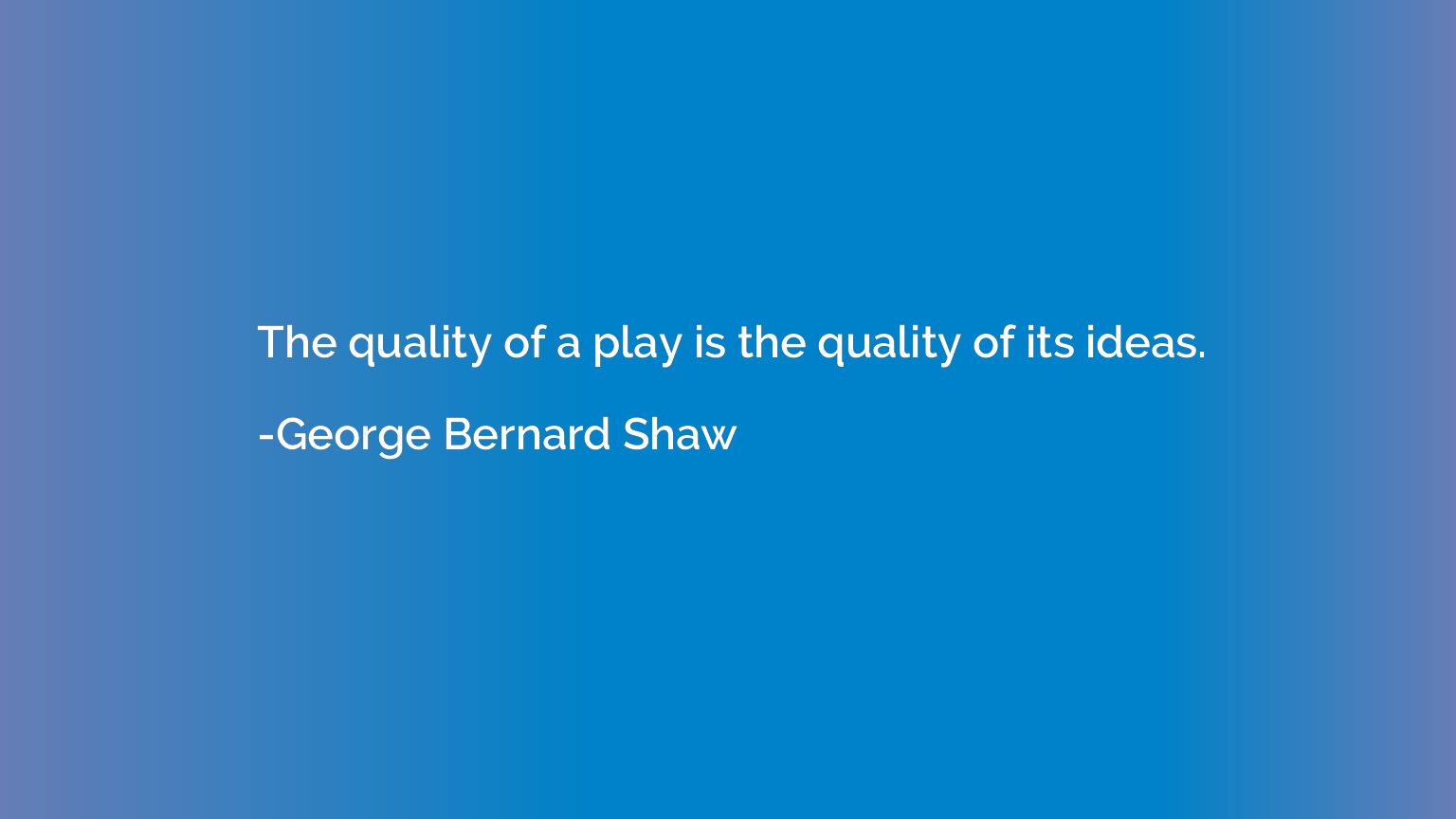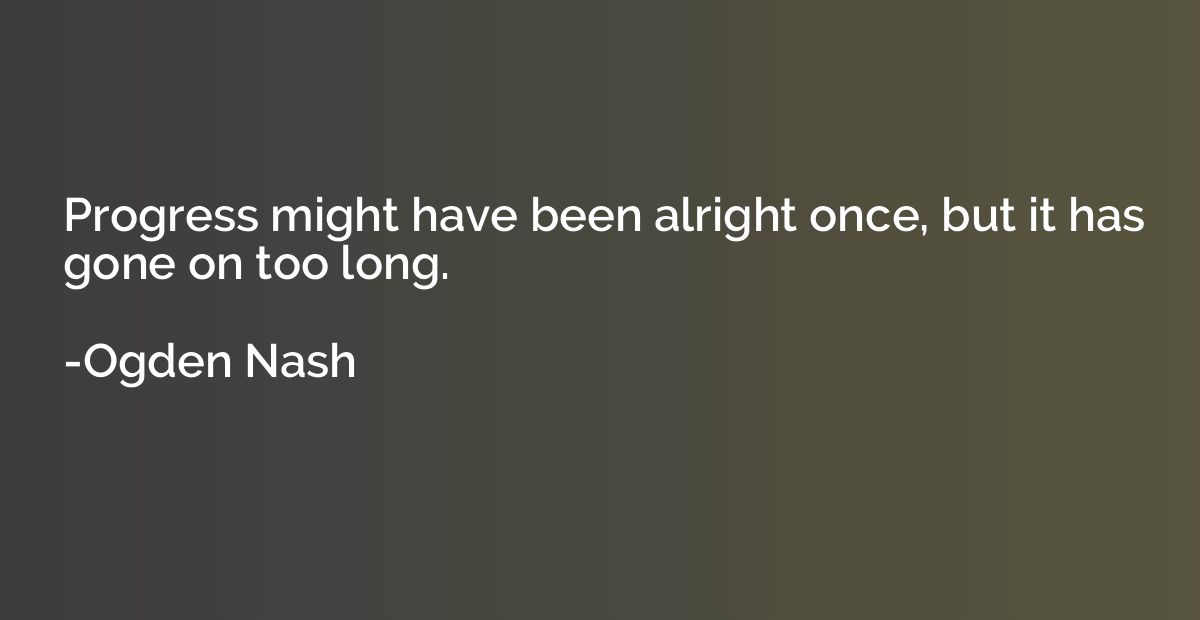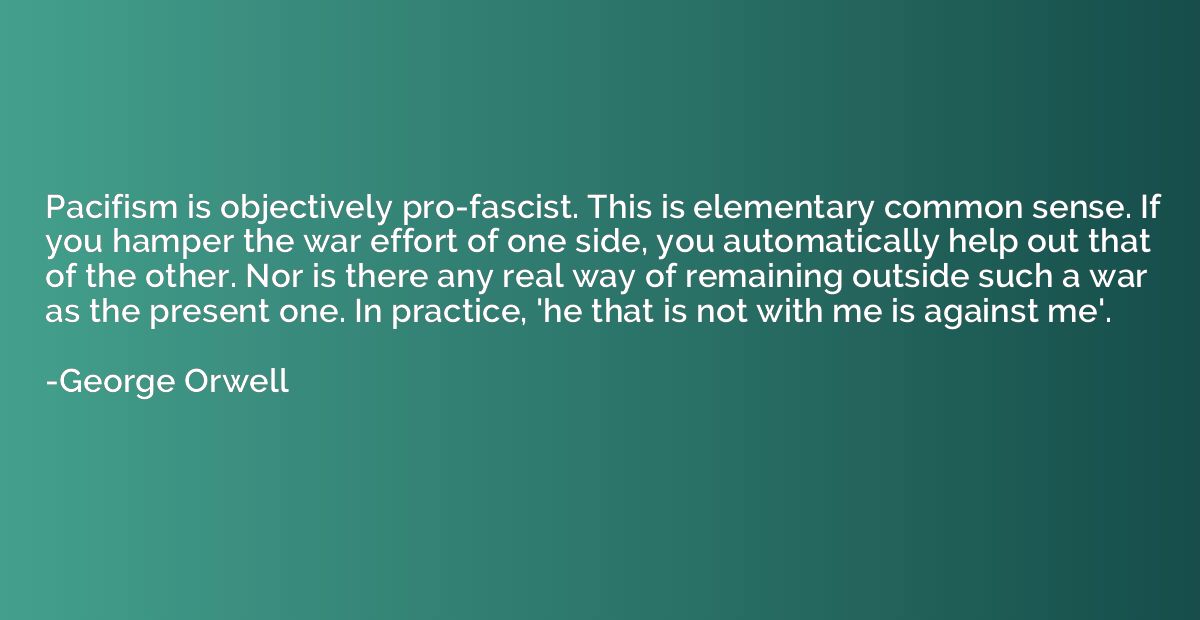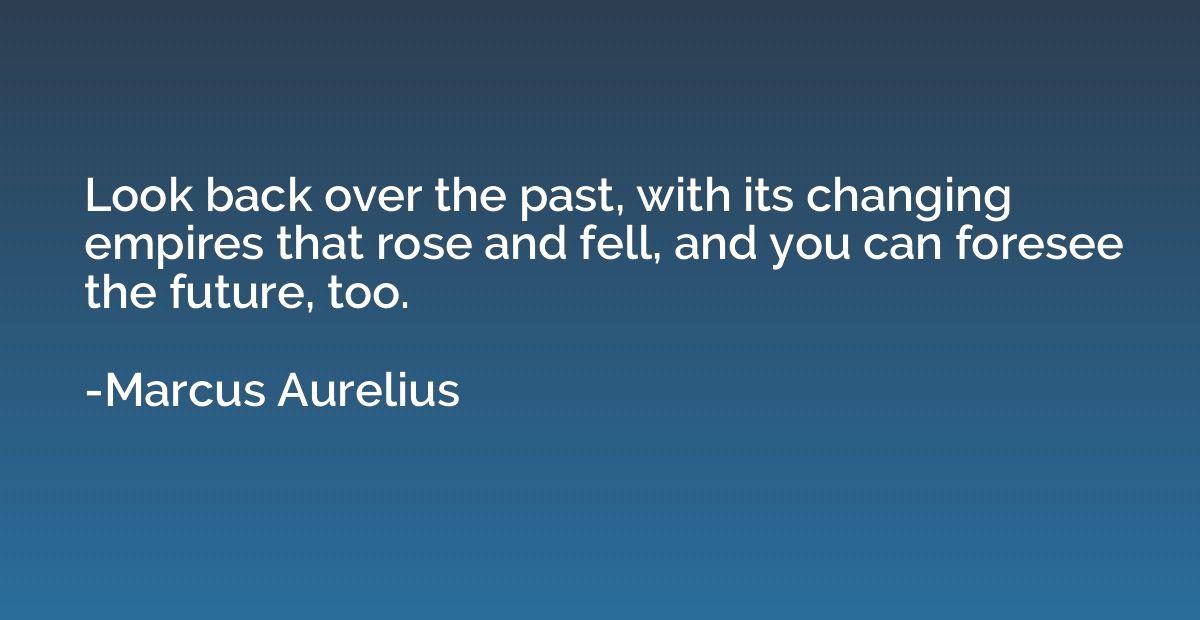Quote by Stephen Hawking
This required abandoning the idea that there is a universal quantity called time that all clocks measure. Instead, everyone would have his own personal time. The clocks of two people would agree if they were at rest with respect to each other but not if they were moving. This has been confirmed by a number of experiments, including one in which an extremely accurate timepiece was flown around the world and then compared with one that had stayed in place. If you wanted to live longer, you could keep flying to the east so the speed of the plane added to the earth
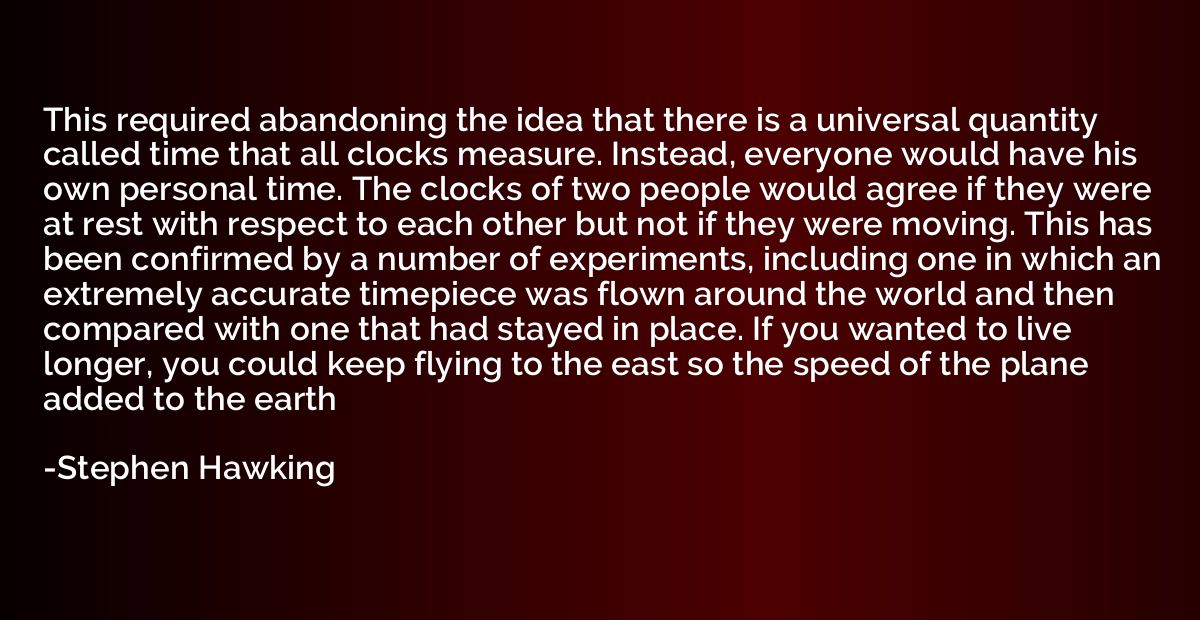
Summary
This quote discusses the concept of personal time and challenges the idea of a universal time measurement. It suggests that each individual would have their own subjective experience of time, rather than a singular, objective measurement. The quote points out that clocks would synchronize when at rest relative to each other, but not when in motion. The notion is supported by experiments, such as comparing the accuracy of a timepiece that flew around the world with another stationary one. Additionally, the quote humorously suggests that continuously flying eastward could potentially prolong one's life by adding the speed of the plane to the rotation of the Earth.



